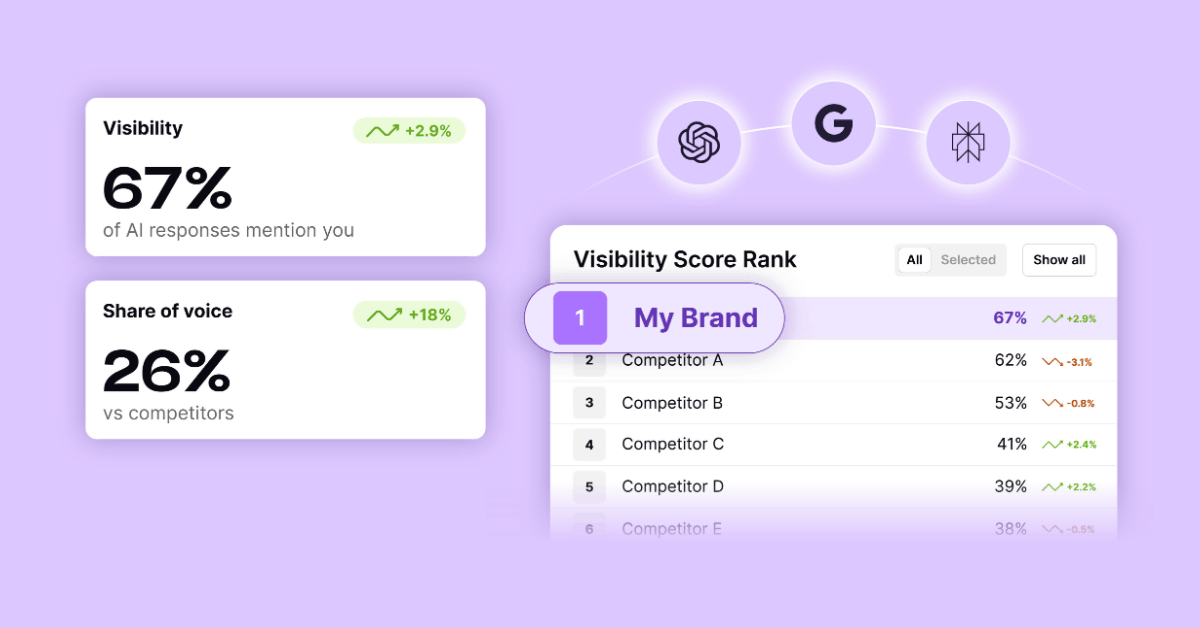
Search re-discovered
Over the course of my time in SEO, countless organic search trends have come, gone, and evolved.
The recent integration of ChatGPT into Microsoft's Bing search engine is the latest major disruption, but has created far more buzz than usual. And for good reason - Artificial Intelligence promises to be the future of organic search.
Most of the commentary has been speculative, some of it alarmist, and has focused mostly on the accuracy, absurdity, or ethical concerns sparked by some of ChatGPT's responses. This all illustrates the tremendous gap between futuristic imaginings and the "reality" as experienced so far.
Yet ChatGPT's integration into Bing has, in the words of Microsoft's CEO, Sataya Nadella, made "Google dance." And by dancing, it has brought broader recognition to a field that has been largely taken for granted since google claimed the verb along with the majority market share.
Search should never be taken for granted. It is not only the web's window for every digital citizen on the planet, but has the potential, through technological innovations like this, to shape new experiences, behaviors, business models, and content streams. Even the internet itself.
Search re-imagined
The integration of generative language models into search functionality is but the latest chapter in a long story of innovation and disruption.
It happened with smartphones, whose popularity shaped new searching behaviors which gave rise to the localization of results, as well as encouraging Google's mobile-first policies on optimizing for search.
It happened with JavaScript eclipsing HTML as the principal technology for distributing content. This created new website experiences for users, changing the emphasis from a page being a document to it being an app. But it also created fresh challenges for search engines and website owners, in terms of the efficiency and profitability of serving these pages at scale. New technologies (AI-enabled also) emerged to help them adapt.
And now this latest disruption. Will it change everything? Here are some initial thoughts, based on the experience so far.
Even in its current iteration, ChatGPT + Bing represents a significant breakthrough in search functionality and user experience. The "summarize the content of the first 10 pages" is a huge step forward in terms of user convenience. The "continue searching" adds precision that enriches the first search and provides some quite amazing results. Searching in this way feels more like an experience, and less like a transaction. This is potentially revolutionary, and, as it develops, will no doubt encourage new behaviors and business models to emerge and consolidate around search.
Chat's ability to summarize what it has learned from the data on the web streamlines decision making, by cutting to the chase. Such short-cutting is not new in search, it's found in snippets, paid results, and voice-assisted search functions such as Apple's Siri. A conversational "answer engine" like Chat takes short-cutting to new levels of no-click convenience, and raises the bar on the speediness of search, a technology that has always prided itself on its ability to serve up responses in lightning quick time.
AI-Powered SEO and user experience
But with every new convenience comes a tradeoff. Large Language Models like ChatGPT work by studying the internet, rather than crawling it in real time as with web-based search. This offers a snapshot of the web, a "blurry JPeg of the web" to use one commentator's useful analogy for the "lossy" compression entailed in approximating the web in this way. The snapshot has a date stamp (currently from early 2021 at time of writing). While for some research needs this isn't a problem, such limitations are already emerging with ChatGPT confessing it can't advise on requests beyond this date stamp. Different search interfaces for different search needs will no doubt emerge once the fuss dies down.
The other potential tradeoff is power. "Classic", web-based, organic search empowers users, and those who serve them (content originators), by helping them find each other on the web. By serving up a list of links, it offers users choices (click, reject, keep scrolling, redefine your search terms). These behaviors offer insights that in turn empower content creators to better understand and serve user intent through SEO strategies.
The fact that most users ignore paid search results and prefer organic results - as our recent research suggests - reaffirms their empowerment. While Google's own estimate that 15% of search terms every day are totally new indicates that users currently call the shots, and the search infrastructure strives to keep up. Using AI for short-cutting and summarizing is one way to respond to this challenge. But there are other ways. These also involve innovations in AI.
AI-Powered SEO and organic search results
A lot is changing very rapidly, and we have only seen a glimpse of what might be possible. But beneath the behavioral changes triggered by these disruptions, a fundamental truth holds true: quality and relevance are still essential for organic findability, whether surfaced by generative or web-based search interfaces. Relevant + Recent is the recipe for findability in the age of AI-empowered search.
The basic "contract" of organic search is to sift, select, and serve the most helpful responses to search queries from the infinite possibilities the internet holds. The benchmark of findability is merit - the quality, relevance, authority of the content, the technical optimization and page speed of its delivery.
What Generative AI highlights is, more than ever, the critical importance of ensuring content integrity, quality and relevance. This alone is how organizations will be able to maximize the likelihood that their content will be featured, either in generative or web-based search results. Brands will need to raise their game to ensure they serve all organic search interfaces.
Organic search accelerated
They will need to raise the tempo too. The new speed of search demand has been set by AI Innovation. Meeting that demand will rely on this innovation too.
The real-time relevance of content surfaced organically through web-based search will be mission critical for e-commerce sites, marketplaces, classifieds, and publishers. Those who build their brands by being real-time relevant to those who search will stay in the game by doing this faster.
Not by shortcutting, but by empowering brands, with insights and activations to help them serve relevant quality content directly to the engines, and those engines to users in turn.
AI innovation doesn't have to delimit or distort the truth of search. We believe it can and must defend it by empowering organic findability. At scale, and at speed, keeping pace with an ever-expanding internet, and infinite human curiosity.
As we closely watch this highly speculative and rapidly-evolving space, we will continue to consider the implications of generative AI and its impact on search behaviors, trends and technologies and the role organic search technology will play.
And we will continue in our mission: to empower brands through leading organic search solutions and services. If search unlocks the internet, we must continue innovating to unlock search.

.svg)



.svg)


.svg)
.svg)

